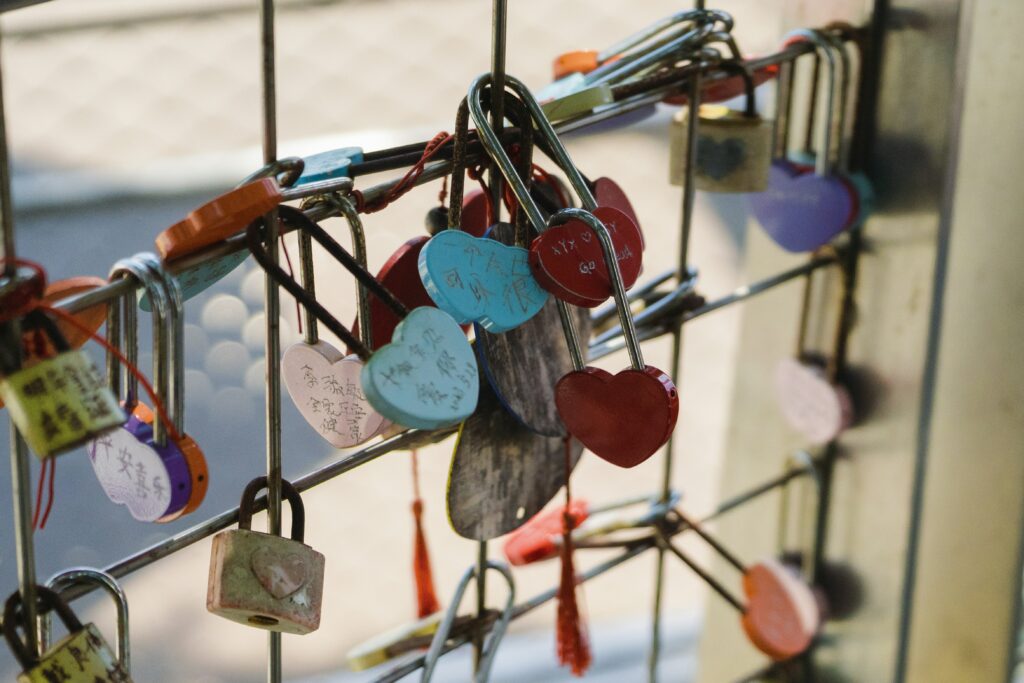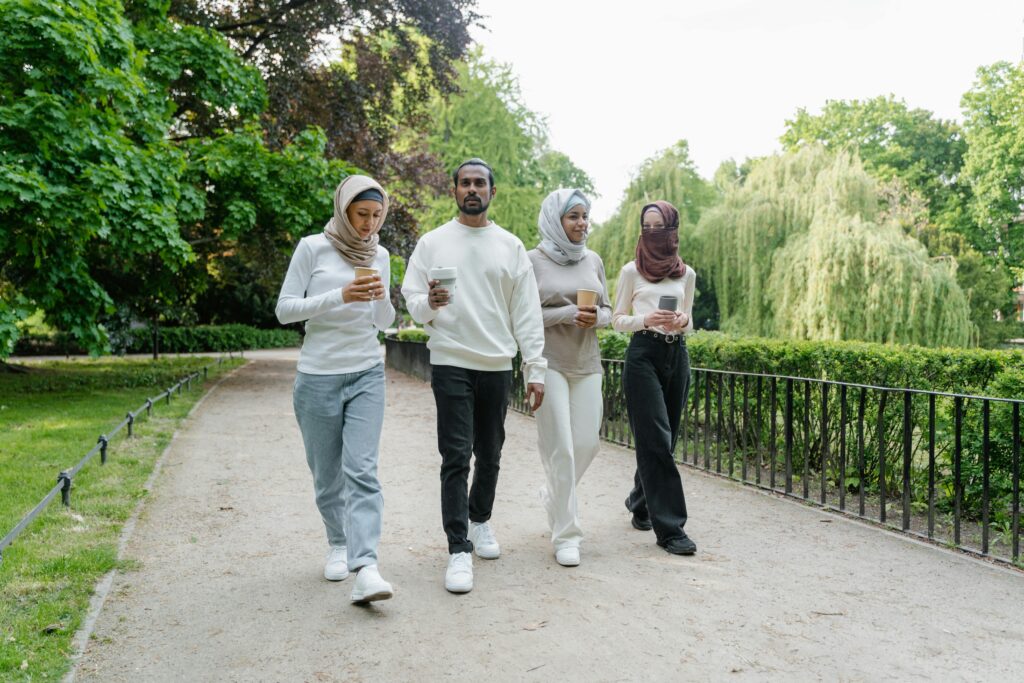Having desire is healthy and normal. But when does longing for more become a problem? And how do we find a balance between being satisfied with what we have and our natural inclination to strive for better?
What do our desires tell us?
Whether it’s making more money, wanting designer clothes, marrying a certain person, obtaining lots of power… Our desires often reflect our deepest fears and insecurities. And that’s why our desires and obsessions are so hard to get over.
Our fears and insecurities thrive on uncertainty.
It’s very comforting (and much easier) to believe in a world of certainties: Attractive people always find love. Rich people always enjoy life. Clever people always win. If we were more like someone else, we’d be ok. If we actually had the thing we desire, we wouldn’t feel the way we feel now.
Even if experience tells us these equations are not true, it’s simple logic like this which offers us the powerful illusion of control in a chaotic world, filled with pressure and competition.
The deeper the insecurity, the more attractive the lie.
That’s why one of the most confronting questions Allah asks us, in many different ways throughout the Qur’an, is: will the things you want so desperately, really bring you peace?
Deep down, we know the answer.

Desire and energy flow
There’s a popular saying: where attention goes, energy flows. And it seems like everything is competing for our attention, all the time.
If you find yourself asking ‘why do I always feel drained or low-energy’, you’re not alone. Energy is leaking out of us, all the time, especially in the form of longing for our unmet desires.
If you were to count how many adverts, brand names, lifestyle products, messages, social media posts, and email-marketing junk, etc you encounter on average each week, you might be surprised at just how much of your life is dedicated to reacting and responding to the frenzy around you.
We live in a culture that seeks to keep us vulnerable and dissatisfied, because our insecurities are someone else’s means of making money. This is one reason why becoming mindful of what we consume, and what we give our precious time and energy to, is a crucial step to feeling stronger mentally and spiritually.

Longing, comparison and dissatisfaction – Qur’an 4:32
There has never been a time in human history where we have been able to compare ourselves with so many different people and lifestyles, 24/7. The more we compare ourselves to others, the more we fuel our ability to feel dissatisfied. So Allah instructs us:
“Do not covet what Allah has given to some of you more than others. For men is a share of what they have earned, and for women is a share of what they have earned. And ask Allah of His bounty. Indeed Allah is ever, of all things, Knowing.” – Qur’an 4:32
Allah did not make us all alike for a reason. In this short life, we each have our own set of gifts and trials to work with. Craving the gifts another person has been given is quite frankly a waste of energy.
Diversity and variety is in itself a gift to humanity which serves many purposes. And we all get our reward, proportionate to the effort we put in.
“And among His signs is the creation of the heavens and the earth, and the diversity of your languages and colors. Surely in this are signs for those of knowledge.” – Qur’an 30:22
Life teaches us that the people our society deems the most ‘successful’ or ‘enviable’ often struggle just as much with anxiety and depression as those who envy them.
“If the son of Adam had a valley full of gold he would wish for two valleys! […] Allah turns with mercy to him who turns in repentance.” – Prophet Muhammad
So shift your gaze away from other people and their shoes which you will never have to walk in, on a path that is not your own.
This life is not about what you have – it’s about what you do with what you were given.

The cure for desire and obsession
Notice how, in Qur’an 4:35, Allah does not tell us that it is wrong to want better things, or to engage in reasonable comparison with those around us – rather if we experience a pang of desire, or a feeling of missing out, we must turn our longing towards Allah.
Asking Allah for his “bounty” (blessings/favours/gifts) reminds us that our fears and insecurities are not bigger than Allah. Because whatever you have is from Allah, and whatever you are seeking, can only ever be found in the hand of Allah.
But it’s up to us not to try to decide what Allah should give us, but to trust in Allah’s wisdom and kindness, so that we can receive what is best for us specifically.
So every time you feel a tug at your heart when you see someone who makes you feel insecure, remember, Allah is calling you to ask for an increase in your blessings. So ask.
Perhaps, if Allah did not want to bring you closer, Allah would not have placed this feeling within you, to remind you that you are always seen, heard and loved just the way you are. Of course Allah is with you, and intends goodness for you. Indeed Allah is ever knowing of all things.
“If My servants ask you about Me, I am near. I answer the call of the caller when he calls on Me.” – Qur’an 2:186

Tips for increasing feelings of self-acceptance and trust in God:
If you find yourself caught in an obsessive spiral, depressive episode, or struggle with negatively comparing yourself negatively to others, here are some things you can try:
- Create a daily gratitude practice (get tips on how)
- Build your feelings of self-love (find out how)
- Work on deepening your relationship with prayer (get tips on how)
- Social media detox – try to stay off all social media and email for three days
- Try a fast of silence (find out more in this blog on silence and Surah Maryam)
- Work on healing past traumas to tackle deep fears and insecurities (learn more)
- Try following social media accounts that are good for your mental health and self-esteem (check out these Muslim-friendly accounts)
- Explore the Qur’an for your mental health (get tips on how)
- Meditate on the possible meanings of the verses from the Qur’an below (find out how to meditate):
Qur’an quotes to meditate on:
“He is the One Who created death and life in order to test which of you is best in deeds. And He is the Almighty, All-Forgiving.” – Qur’an 67:2
“See how We have bestowed more on some than others (in this world) and verily, the Hereafter will be even greater in degrees and greater in favours.” – Qur’an 17:21
“And when adversity touches the people, they call upon their Lord, turning in repentance to Him. Then when He lets them taste mercy from Him, at once a party of them associate others with their Lord, So as to be ungrateful for what We have given them; but enjoy yourselves (for a while), for you shall soon come to know. […] And when We let the people taste mercy, they rejoice therein, but if evil afflicts them for what their hands have put forth, immediately they despair. Do they not see that Allah extends provision for whom He wills and restricts [it]? Indeed, in that are signs for a people who believe.” – Qur’an 30:33-37
“Do they distribute the mercy of your Lord? It is We who have apportioned among them their livelihood in the life of this world and have raised some of them above others in degrees [of rank] that they may make use of one another for service. But the mercy of your Lord is better than whatever they accumulate.” – Qur’an 43:32
“She inclined toward him, and he would have inclined toward her, had he not seen the proof of his Lord…” Qur’an 12:34
“And among mankind some worship God upon a brink: if good befalls him, he is content thereby, but if a trial befalls him, he is turned over on his face, losing this life and the Hereafter. That is the manifest loss. He calls, apart from God, upon that which neither harms him nor benefits him. That is extreme error.” – Qur’an 22:11-12
“O mankind, indeed We have created you from male and female and made you peoples and tribes that you may know one another. Indeed, the most noble of you in the sight of Allah is the most righteous of you.” – Qur’an 49:13
“Say unto My servants that they should say that which is more virtuous. Surely Satan provokes ill feeling between them. Surely Satan is a manifest enemy unto man.” – Qur’an 17:53
“Unto Him is your return all together; God’s Promise is true. Verily He originates creation, then He brings it back, that He may recompense with justice those who believe and do righteous deeds…” – Qur’an 10:4

